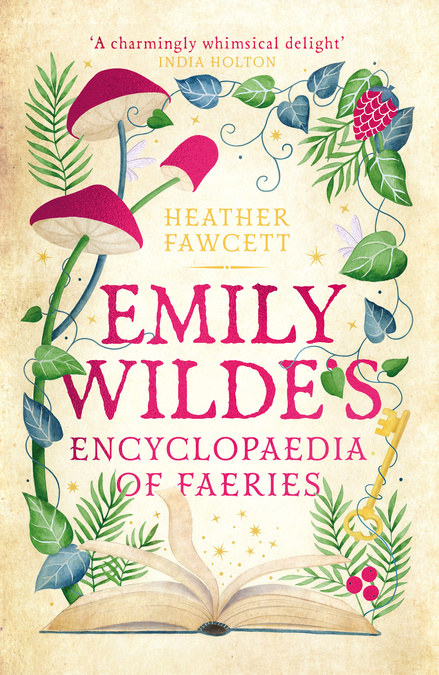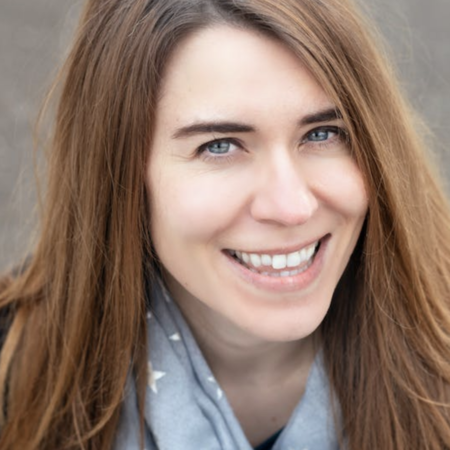Some people do not like or get people.
If you’re an extrovert like this reviewer, that likely seems like an alien idea; sure, people can be annoying and trying at times but gosh, isn’t it good to have them around you?
Emily Wilde does not think so, and while she is great at a good many things such as meticulous research, tenacious enquiry and expansive scholarly writing, she isn’t adapt in any way shape or form when it comes to dealing with the people of the towns and village that are central to her research.
By starkly ebullient way of contrast, her insufferably upbeat and endlessly charming colleague, Wendell Bambleby, adores humanity, skilled at relating to just about anyone about anything, a talent that has seen him invited to conferences, earn the full professorship that still eludes Emily, and enjoy the cachet of being the most likeable expert in their chosen field.
The title of the book under review, Emily Wilde’s Encyclopaedia of Faeries by Heather Fawcett, gives that particular academic mystery away, with both Emily and Wendell spending their time investigating the world of the Hidden Ones, a species of faerie that is divided into common and courtly, the former far nicer than the latter, and which dwells in our realm but also in an invisible realm of their own which no one can really gain access to (and if they can, it can send them mad).
Should you be approached by an animal, you will likely notice the rustle of leaves, the snapping of twigs. Should you be approached by a faerie, you may hear nothing at all, or only the subtlest of variations in the natural soundscape. It takes years for a scholar to master the necessary powers of observation.
Not even Emily, who is working on the titular encyclopaedia which she envisions as the last word on the faeries, has found a way in, not for want of trying, and while she knows the stories of those fellow academics who have tried to gain entry and then disappeared, her devotion to her field of study is such that she keeps trying, no matter the dangers.
Her latest expedition is to Ljosland in Norway, a snowy landscape where the villagers of Hrafsnsvik, who live a hardscrabble existence, have intimate knowledge of the Hidden Ones who live in the extensive forests and plains around them.
While the common faeries are relatively trouble-free, and exist in a mutually beneficial relationship with those humans they do encounter, the courtly faeries are vicious, venal creatures who kidnap human children and teenagers, often feeding off their mortal energy like vampiric existentialists.
Some of the villagers have either lost children to the faeries kidnappers, who lives indolently indulgent lifestyles and treat each other with almost the same cruel contempt as they treat mere mortals, or have unwelcome guests as a result of their visits, and so Emily needs to get them onside if she’s to succeed in her goal of further research and the completion of her decade-in-the-making book.
Alas, as we’ve established Emily does not do people well, or at all, and so it’s up to Wendell, who arrives unexpectedly and to Emily’s great annoyance, to smooth the relationships with Aud the head lady of the village and others whom his blithe colleague has upset just by being her insular self.
Placed into close proximity, both in their living conditions and their research activities, Emily begins to realise there is far more to Wendell than she gave him credit for, and that maybe she has wholly misjudged this remarkably mysterious man who wears his heart on his sleeve but who harbours more than a few secrets.
While there is darkness and trouble in Emily Wilde’s Encyclopaedia of Faeries, it is overwhelmingly a charmingly, sunshiney delight, the sort of story that has far more to do with the closed off nature of Emily’s heart than it has to do with the faeries in its title and at the glowingly lovely centre of its pell-mell narrative.
The joy of this book is watching Emily, while remaining very much her obdurate, tenaciously uncompromising self, start to thaw ever so slightly here and there, uncharacteristically befriending a farmer and his wife, who unaccountably like her (colour Wendell amazed), proposing a risky rescue mission into the heart of faeriedom and beginning to appreciate that Wendell may have some strangely mysterious but quite likable mysteries of his own.
Being a gloriously flawed human being, Emily is an absolutely engaging riot to read about, all hard edges and singular concentration, the sort of person that most people don’t warm to except for Wendell who seems interestingly besotted with her in all social niceties-challenged glory.
She may have locked her heart away in many ways but make no mistake Emily is the beating, reluctant heart of Emily Wilde’s Encyclopaedia of Faeries, a woman who is more able than the man she has to put up with in many ways but who discovers that perhaps people, and being connected to and vulnerable with them isn’t so bad after all.
He [Wendell] let me strip the cloak from him, and then he collapsed into the chair. Only after I had made him another mug of chocolate and built the fire up for him again did he start to laugh at me.
‘Bastard,’ I said, which only made him laugh harder. I stomped off to my room, having had quite enough of him for one night.
As you read Emily Wilde’s Encyclopaedia of Faeries, it becomes readily apparent that while there is great magic in the realm of the faeries, some used for good, some used for ill, there is perhaps a greater magic in Emily’s slow but steady transformation into someone who appreciates not just how good Wendell might be but how lovely people in general might be.
She is still prickly and uncertain at times, and frankly Wendell wouldn’t have it any other way, but as Emily Wilde’s Encyclopaedia of Faeries progresses in all its whimsically transportive delight, she starts to become someone who values people almost as much research.
Fawcett makes it clear again and again that there is nothing wrong per se with Emily as she is at the start of the book, and that she is eminently talented and capable; rather, as she learns some valuable life lessons, she grows as a person, becoming a fuller, more rounded human being and you suspect, far happier than she once was.
There is nothing about Emily Wilde’s Encyclopaedia of Faeries than isn’t enchantingly wonderful, from the vibantly, fully fleshed-out characters to a storyline rich in common living and magical worlds, and some sagely quirky life lessons about how people may be difficult and problematic at times but how they can make life, anyone’s life, infinitely better if you can simply open your heart freely to them.
If you want cosy and delightful with a healthy dose of darkness, then Emily Wilde’s Encyclopaedia of Faeries is your next must-go-to read, a tale of the fantastical and the human that speaks to the power of connection, openness, love and sacrifice and the fullness that comes from letting yourself grow into more than you once were.

